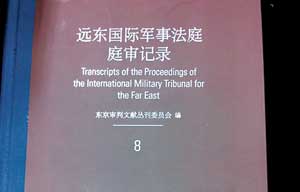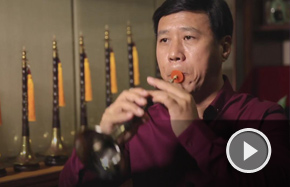Finding roots
Take alcohol for example, or the baffling welcoming custom in nearly every part of the nation that seems to be solely aimed at getting a newcomer drunk. "It's actually one way to re-live the agrarian experience," Zhang explains.
"Why do we have to drink rounds and be tipsy? Because that way you'll let down defenses and become intimate, in the way you become familiar with a clansman," Zhang says. "There's no way you can do business until you have such a level of trust."
Becoming sworn brothers is another attempt to recreate the type of trust that has its roots in agrarian culture.
"Think about the ceremony when you pledge brotherhood to someone unrelated, there is blood shedding, the symbol of getting into the same lineage, kowtowing to one ancestor and drinking," Zhang explains.
"You're trying to mimic family, where trust comes from."
And it's a family of hierarchy, which is also reflected in urban life. "When you are out at dinner, you automatically sit in order," Zhang says. "In the same way that villagers have always done, with the eldest at the center."
"As long as such ceremonial acts live, we'll continue to be under the influence of agrarian culture," Zhang says.
That also explains why the younger generations are not departing far from the family tree.
"They still respect the yearly homecoming and Spring Festival celebration, they know where their home and ties are even if they are staying in the city for a much longer time," Zhang says.
Wan Jianzhong, a researcher of Chinese folklore and culture anthropology with Beijing Normal University echoed Zhang's opinion.
"Repeating the ceremonial acts keeps the society close to traditions and safe," Wan says. "Familiarity and safety are the keys to navigating our society. And such practices come from country life."
"We are all still ruled by the agrarian ways of thinking, and the society works as a gathering of acquaintances."
But these deep-rooted modes of thought are sometimes at odds with city life.
"Modern city life doesn't allow for such feelings and family bonds, nor the measured, natural pace of country life," Zhang says.
For Zhang, that explains the lack of writing about city life.
"Let's face it, we don't have proper urban fictions," Zhang says. "Because none of the authors understand the core of modern life."
"We're producing great writing about rural China, we're known abroad for depicting country life, but it will be years before stories about the city come along," Zhang says.
Zhang says he has done his share of work, pointing out the principles of the Chinese. "We're governed by it but so few people are aware of its silent force."
"I hope more will reflect on our cultural genes deep down," Zhang says. "Even though so many of us, including me, could never go back to the rural life."

























